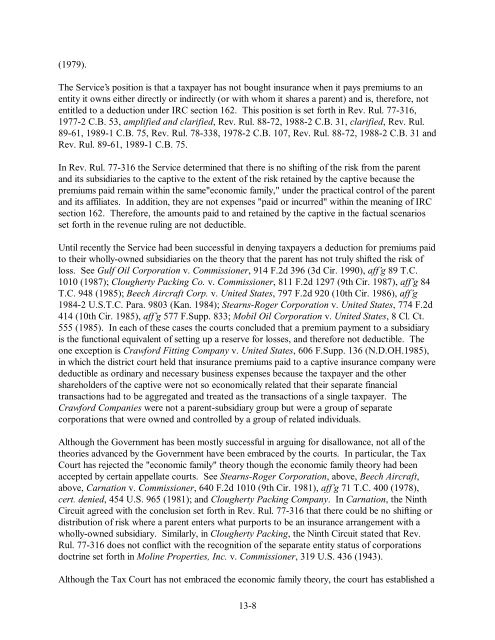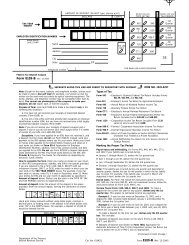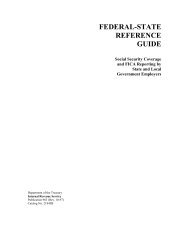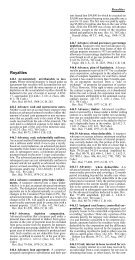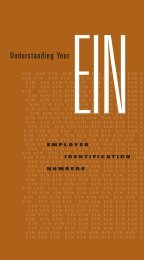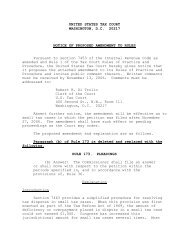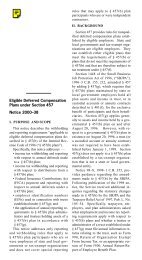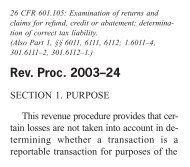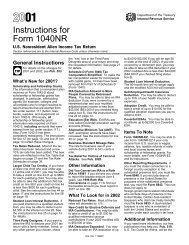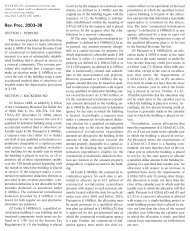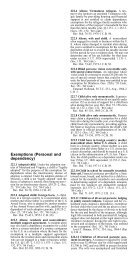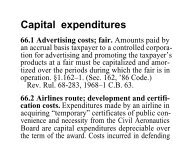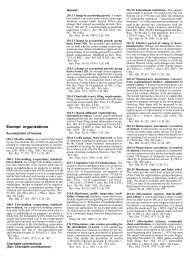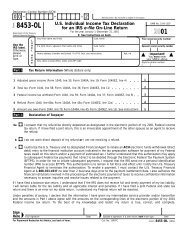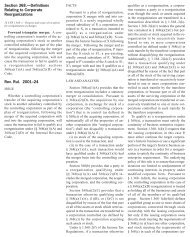Auto Dealerships - Audit Technique Guide - Uncle Fed's Tax*Board
Auto Dealerships - Audit Technique Guide - Uncle Fed's Tax*Board
Auto Dealerships - Audit Technique Guide - Uncle Fed's Tax*Board
Create successful ePaper yourself
Turn your PDF publications into a flip-book with our unique Google optimized e-Paper software.
(1979).<br />
The Service’s position is that a taxpayer has not bought insurance when it pays premiums to an<br />
entity it owns either directly or indirectly (or with whom it shares a parent) and is, therefore, not<br />
entitled to a deduction under IRC section 162. This position is set forth in Rev. Rul. 77-316,<br />
1977-2 C.B. 53, amplified and clarified, Rev. Rul. 88-72, 1988-2 C.B. 31, clarified, Rev. Rul.<br />
89-61, 1989-1 C.B. 75, Rev. Rul. 78-338, 1978-2 C.B. 107, Rev. Rul. 88-72, 1988-2 C.B. 31 and<br />
Rev. Rul. 89-61, 1989-1 C.B. 75.<br />
In Rev. Rul. 77-316 the Service determined that there is no shifting of the risk from the parent<br />
and its subsidiaries to the captive to the extent of the risk retained by the captive because the<br />
premiums paid remain within the same"economic family," under the practical control of the parent<br />
and its affiliates. In addition, they are not expenses "paid or incurred" within the meaning of IRC<br />
section 162. Therefore, the amounts paid to and retained by the captive in the factual scenarios<br />
set forth in the revenue ruling are not deductible.<br />
Until recently the Service had been successful in denying taxpayers a deduction for premiums paid<br />
to their wholly-owned subsidiaries on the theory that the parent has not truly shifted the risk of<br />
loss. See Gulf Oil Corporation v. Commissioner, 914 F.2d 396 (3d Cir. 1990), aff’g 89 T.C.<br />
1010 (1987); Clougherty Packing Co. v. Commissioner, 811 F.2d 1297 (9th Cir. 1987), aff’g 84<br />
T.C. 948 (1985); Beech Aircraft Corp. v. United States, 797 F.2d 920 (10th Cir. 1986), aff’g<br />
1984-2 U.S.T.C. Para. 9803 (Kan. 1984); Stearns-Roger Corporation v. United States, 774 F.2d<br />
414 (10th Cir. 1985), aff’g 577 F.Supp. 833; Mobil Oil Corporation v. United States, 8 Cl. Ct.<br />
555 (1985). In each of these cases the courts concluded that a premium payment to a subsidiary<br />
is the functional equivalent of setting up a reserve for losses, and therefore not deductible. The<br />
one exception is Crawford Fitting Company v. United States, 606 F.Supp. 136 (N.D.OH.1985),<br />
in which the district court held that insurance premiums paid to a captive insurance company were<br />
deductible as ordinary and necessary business expenses because the taxpayer and the other<br />
shareholders of the captive were not so economically related that their separate financial<br />
transactions had to be aggregated and treated as the transactions of a single taxpayer. The<br />
Crawford Companies were not a parent-subsidiary group but were a group of separate<br />
corporations that were owned and controlled by a group of related individuals.<br />
Although the Government has been mostly successful in arguing for disallowance, not all of the<br />
theories advanced by the Government have been embraced by the courts. In particular, the Tax<br />
Court has rejected the "economic family" theory though the economic family theory had been<br />
accepted by certain appellate courts. See Stearns-Roger Corporation, above, Beech Aircraft,<br />
above, Carnation v. Commissioner, 640 F.2d 1010 (9th Cir. 1981), aff’g 71 T.C. 400 (1978),<br />
cert. denied, 454 U.S. 965 (1981); and Clougherty Packing Company. In Carnation, the Ninth<br />
Circuit agreed with the conclusion set forth in Rev. Rul. 77-316 that there could be no shifting or<br />
distribution of risk where a parent enters what purports to be an insurance arrangement with a<br />
wholly-owned subsidiary. Similarly, in Clougherty Packing, the Ninth Circuit stated that Rev.<br />
Rul. 77-316 does not conflict with the recognition of the separate entity status of corporations<br />
doctrine set forth in Moline Properties, Inc. v. Commissioner, 319 U.S. 436 (1943).<br />
Although the Tax Court has not embraced the economic family theory, the court has established a<br />
13-8


